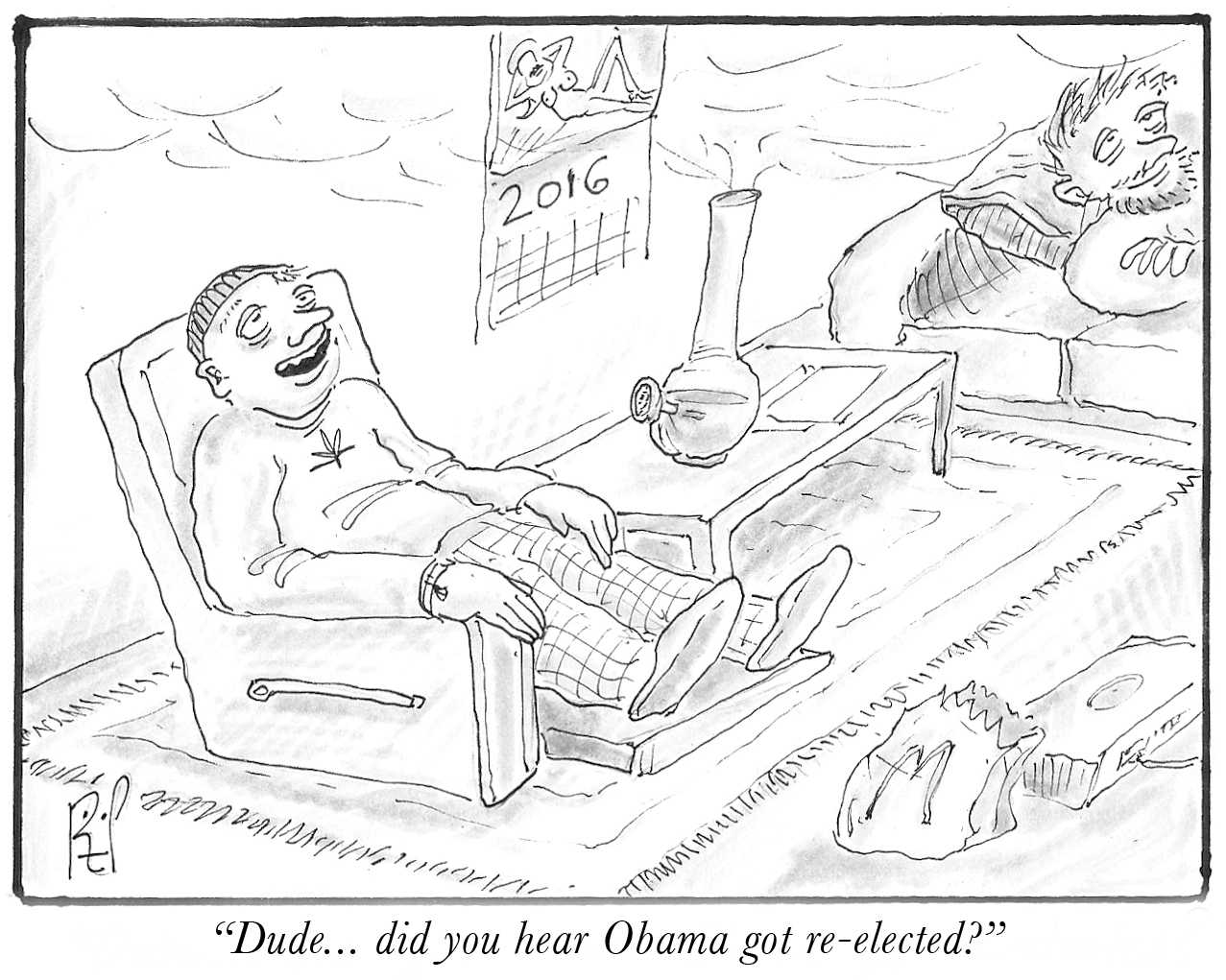When I first heard that a possibly dangerous, mood-altering, motor skill-impairing controlled substance was being legalized somewhere in the United States, I nearly choked on my beer.
There it was in front of me, though. Tuesday, Oct. 30: Amendment 64 passes in Colorado. Within an hour my newsfeed lit up with “Woohoo”s, “Hell Yeah”s and intentions to move there.
Here’s my advice: Don’t. Don’t move to Colorado, don’t visit Colorado and for God’s sake, quit posting about it on Facebook.
Now, staying away may seem counterintuitive if you support Colorado’s decision. An influx of eager — or at least mildly motivated — pot smokers would surely inflate revenue gained from the new industry.
Anyone travelling there to toke up, however, would be sad to find that commercial sale of marijuana may not become a reality for a year or more.
Also, according to Colorado Attorney General John Suthers, the proposed 15 percent surtax for marijuana sales did not comply with the Taxpayer Bill of Rights. As a result, it will not go into effect unless the Colorado Legislature allows voters to choose and if voters then decide to implement the tax.
This means the most direct benefits of a legal business, the estimated $24 to $73 million in taxes and the $40 million to be awarded to K-12 schools, may not be realized. It also evidences the shaky grounds the amendment sits on.
Nevertheless, if the amendment is successfully put into play, you can bet your bong opponents will keep a watchful eye on the unpopular effects, including those related to marijuana tourism.
Increases in traffic and undesirable tourist behaviors are among a few reasons the Netherlands recently considered adopting a weed pass, barring non-Dutch citizens from purchasing marijuana in their coffee shops.
Besides resistance from the federal government, legalization of marijuana was opposed by 45 percent of Colorado voters, including Gov. John Hickenlooper and Denver Mayor Michael Hancock. With high levels of vigilance and vocal criticism, a stoned pilgrimage jacking up the rate of car crashes or annoying radio call-ins would be the impetus for Colorado and other states to pass on grass in the future.
At this point you may be saying, “Wait a minute. I smoke the marijuana and I’m a responsible citizen. Why shouldn’t I visit Colorado?” This is hardly directed at you.
The National Survey on Drug Use and Health reported in 2009 that 18.1 percent of U.S. citizens aged 18-25 had used marijuana in the past month. Of that number, most are as likely to travel to Colorado solely for legal weed as disgruntled Republicans were to leave the country after Obama’s re-election.
It goes without saying the minority that does follow through will represent the extreme members of the group. If they can’t be dissuaded from going, I urge them to remember this: Legalization of marijuana is not license to get away with other shenanigans.
Driving under the influence is still prohibited, as is consumption by persons under 21, public use and possession or unlicensed distribution of more than an ounce. In addition to following these laws, they should also remember to be responsible and courteous.
The amendment represents a tremendous shift in our government and culture. Each development will be treated as either a victory for or testimony against the legalization of marijuana.
Just please realize there are more benefits to legalization than “smokin’ doobs, bro,” and if we prove unable to sensibly handle the matter and allow Colorado to work out the kinks themselves, it will quickly be overturned.











